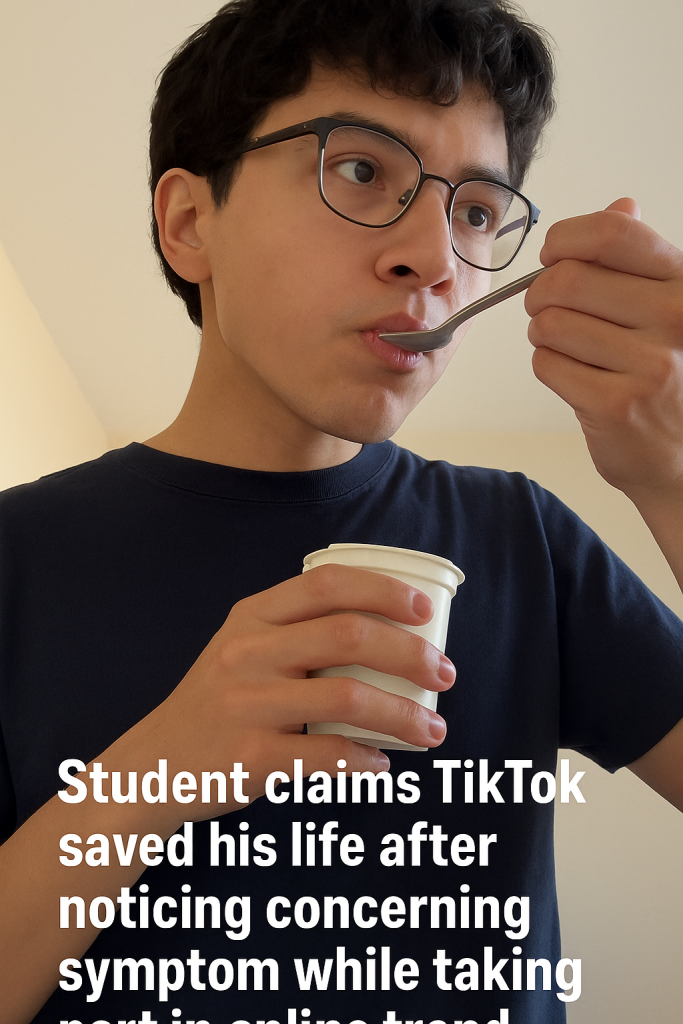A university student has shared a remarkable story of how participating in a popular TikTok trend unexpectedly led to the early detection of a potentially serious health issue—one that he had never noticed on his own.
In early 2024, the student, who wishes to remain anonymous, took part in an online challenge that involved monitoring subtle physical changes and symptoms that can often go unnoticed. What began as a casual engagement with a viral trend soon revealed concerning signs that prompted him to seek medical advice, ultimately leading to a timely diagnosis that may have saved his life.
The Viral Trend That Sparked Awareness
The TikTok challenge in question encouraged participants to pay close attention to subtle changes in their bodies, such as slight variations in heart rate, breathing patterns, or unusual sensations, which might otherwise be dismissed. Many users shared their experiences of discovering symptoms linked to a range of conditions — from anxiety and dehydration to in some cases, more urgent medical issues.
For this student, engaging with the challenge meant recording and comparing his symptoms over several days. While initially he noted what seemed like minor dizziness and occasional shortness of breath, the trend’s community discussions and shared knowledge led him to connect these with a lesser-known symptom cluster associated with cardiovascular complications.
“I never thought those little feelings were anything serious,” the student said. “The trend opened my eyes that these small things could actually mean something more important.”
From Online Discovery to Real-World Diagnosis
Guided by the information and encouragement found within the TikTok community, he visited his doctor, who conducted thorough tests. The results revealed an early-stage cardiac condition that, if left untreated, could have escalated into life-threatening complications.
Doctors commended the student for his proactive approach, highlighting how social media trends—when combining factual info and community support—can sometimes bridge critical gaps in health awareness, especially among younger populations who might not regularly visit healthcare providers.
The Wider Impact of Social Media on Health Literacy
This case is part of a growing number of instances where social media platforms have played a positive role in health monitoring and education. Despite concerns about misinformation online, certain trends grounded in medically accurate advice have empowered people to recognize symptoms earlier and seek help promptly.
Medical experts urge caution, however, advising that social media should not replace professional diagnosis but can be a useful supplement for raising awareness.
A Cautious but Optimistic Outlook
The student’s experience has sparked conversations about the potential benefits of leveraging popular online trends as tools for public health awareness. By combining viral content with credible information, it appears possible to reach demographics that traditional health campaigns sometimes miss.
“If sharing my story encourages even one other person to take their symptoms seriously and get checked out, it’s worth it,” he said.
The event stands as a powerful reminder that sometimes, paying attention to what seems like small details can make an enormous difference—and that even platforms known for entertainment can have lifesaving impacts.



